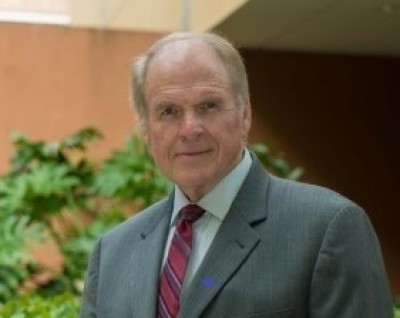The 2020 election and untethered prophets (pt 1)
Fake news and false prophecies boiled around the 2020 presidential race like tempests stoking a hurricane.

From the perspective of Donald Trump and his associates, establishment media pumped hefty currents of disinformation and misinformation into the political cyclone through fake news. Many observers on both sides noted the “failed prophecies” that Trump would be re-elected in a landslide.
When that did not happen, skeptics derided, and many people, even among the faithful, wondered what went wrong.
The problem, however, is not with prophecy but with untethered prophets.
These would-be foretellers herald predictions they claim God gave them, but their pronouncements are untested, and they really issue them under their own authority. They are “untethered” in the sense they have little or no relational connection to godly authorities to whom they can submit their message before they trumpet it under the claim, “Thus saith the Lord...!”
False prophets are lone-wolf seers rather than spiritually sensitive men and women tethered to a doctrinally sound church and submitted to spiritually mature elders. Such elders are biblically informed leaders who know the prophetic person relationally and biblical doctrine by which they can help assess the purported prophecy.
Thus, a primary characteristic of authentic prophecy is that it is given in the context of a biblically based church. This is Paul’s point in 1 Corinthians 12-14: The “trumpet” should be sounded and judged in a smaller group-setting before it is blasted to the globe.
Jesus said of the “end times”: “Many false prophets will arise and will mislead many... false Christs and false prophets will arise and will show great signs and wonders so as to mislead, if possible, even the elect.” (Matthew 24:11, 24)
Prophecy and other spiritual manifestations were a major concern of the Apostle Paul as he and his colleagues planted churches across the Roman Empire. The new believers continued to live in chaotic, sensate, idolatrous cultures. False prophets picked up on waves of public opinion and fashioned messages and mystical moods.
Corinth was of special concern to Paul. The church there was made up of people zealous for their new faith. As they broke out of the rigid form of legalism some of the people bolted into the frenzy of spiritual antinomianism. They saw little or no doctrinal boundaries, especially regarding the use of the sign gifts. The balance that produced healthy, authentic New Testament ministry was lost.
Form people believed the frenzy segment had even exceeded the boundaries of Scripture. The frenzy side accused the form faction of quenching the Holy Spirit.
Paul confronted this head-on in 1 Corinthians 14, intensely relevant for our age.
The Apostle affirms all the gifts as being given by God for the sake of building up the church and the advance of Christ’s Kingdom in the world. Jesus had told His core followers to make “disciples” in all the nations, and to instruct them in everything He had taught them. According to Matthew 10, that meant among other things, casting out demons and healing the sick.
Sign gifts are prominent in authenticating the Gospel to pagan societies. Paul’s letters seek to bring order to the use of spiritual gifts. And that includes “prophecy.”
Paul maintains the careful balance between “form and frenzy” when he writes, “desire earnestly to prophesy, and do not forbid to speak in tongues. But all things must be done properly and in an orderly manner.” (1 Corinthians 14:40)
There is a great struggle between cosmos and chaos in the fallen world. It is tragic when gifts are distorted to become instruments of chaos. That’s what Paul was battling at Corinth. “Order” is not rigid legalisms, but structural coherence to which careful thought has been given. Such “order” is not reactive authoritarianism but mature leadership.
There are important differences between the “prophetic ministry” of the church, and “prophecy.” The prophetic ministry is, as some have called it, “forth-telling,” while “prophecy” is “fore-telling.” “Prophecy” is prediction, whereas the “prophetic” is proclamation.
Whether cessationist (those who believe the sign gifts ended with the passing of the Apostles) or non-cessationist (those who believe the sign gifts continue), there would be wide agreement among Christians that the work of the prophetic ministry is a continuing and urgently needed ministry now whereby the church confronts its culture and its institutions with biblical truth.
Many contemporary followers of Christ continue to believe that the Holy Spirit gives some people remarkable insight into currents of time and history, and that such individuals will sometimes “prophesy” by telling what they are seeing or sensing.
Paul indicated in 1 Corinthians 14 that sign gifts were best manifest in small groups as they had been in the early house churches. Biblical order could be maintained. It was possible to follow the admonition to “know those who labor among you”... (1 Thessalonians 5:12)
The “prophetic” ministry of the church is primarily the task of the larger gathering we might call the “great congregation,” while “prophecy” is most effective in small groups. There the would-be prophet can be in close relationship with others who can “inspect” the fruit of his or her life, and where utterances in tongues as well as known languages can be evaluated and interpreted by elders and other mature Christians.
We need the prophetic word now more than ever. However, we need to be able to trust it as coming from God. This requires both mature individuals and biblically solid churches and their leaders.
In that context true prophecy and powerful prophetic ministry can grow and bless the nations. In Part II we examine principles of well-tethered prophecy.
Wallace Henley is a former pastor, White House and congressional aide, and author of more than 25 books. His newest is Two Men From Babylon: Nebuchadnezzar, Trump, and the Lord of History, published by Thomas Nelson.



























